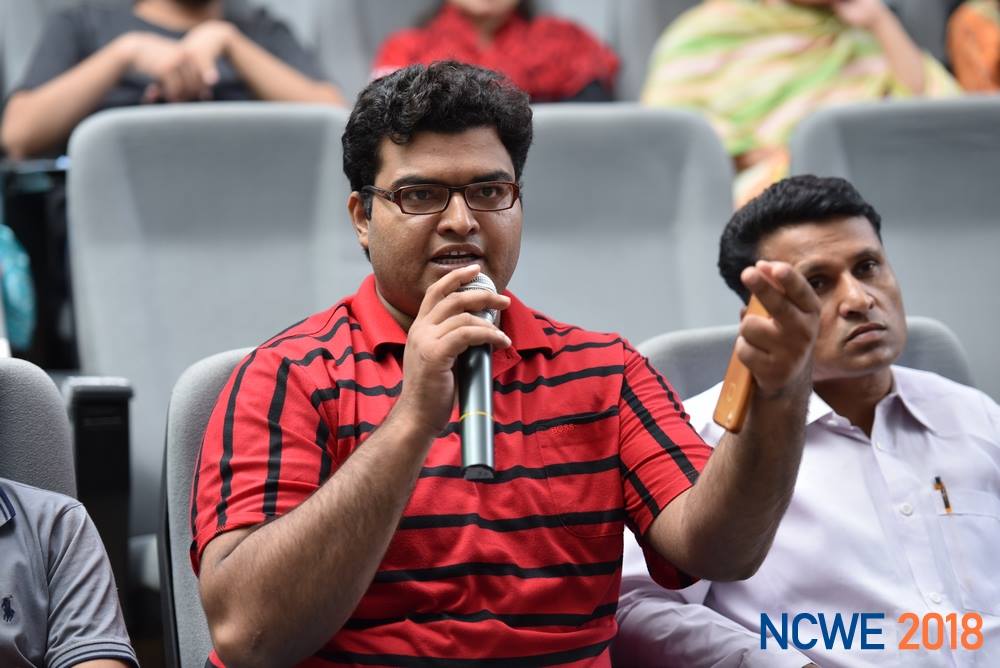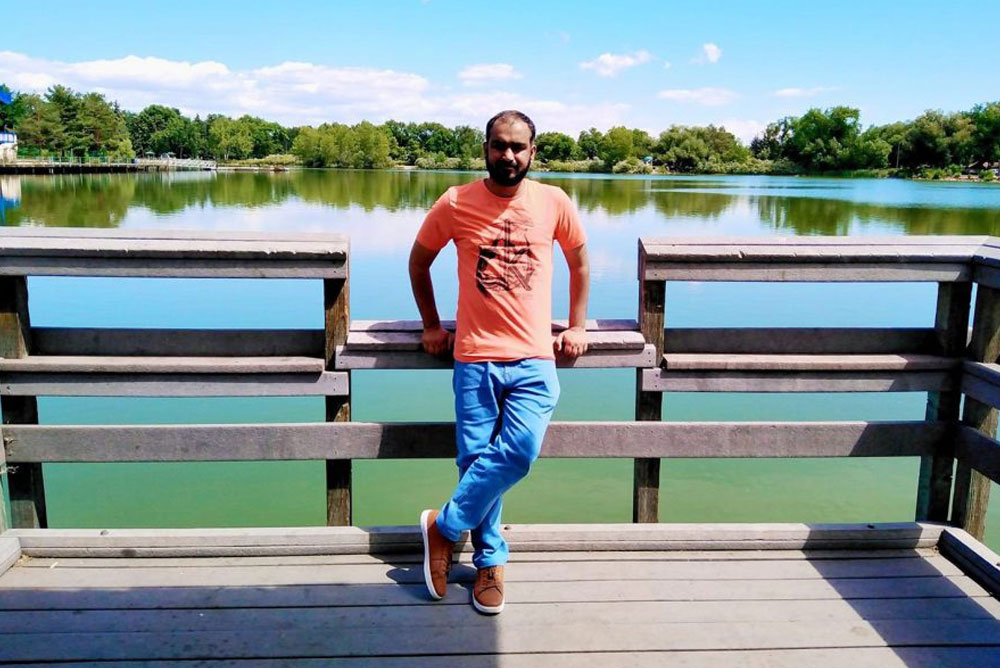Muhammad Wajid Ijaz from Sangla Hill District Nankana Sahib-Punjab is the first Ph.D. graduate of the U.S.-Pakistan Center for Advanced Studies in Water at Mehran University of Engineering & Technology, Jamshoro. Wajidis the first scholar to complete his doctorate in the field of environmental engineering at the center. He is also a government officer who first served in a vocational training institute, then served in the Water and Power Development Authority, Research Wing of the Agriculture Department.
Wajid learned about USPCAS-W through Facebook. He approached the Center seeking merit-based admission and qualified. He was motivated to fill the gap between industry and academia and sought an advanced degree to enhance his ability to strengthen the link between government agenciesand universities. Before joining the Center, Wajid had already cultivated a rich academic background. He has received a B.Sc. in Agricultural Engineering at the University of Agriculture, Faisalabad. Later on, he achieved an M.Sc. in the Centre of Excellence in Water Resources Engineering, UET, Lahore in 2012. His field specialties included Water Resources Engineering. Motivated by his vision, he joined USPCAS-W for Ph.D. in Environmental Engineering and became the first doctoral scholar to complete the degree. He describes his through out experience at the Center as “an amazing experience. Though the laboratories and the Centre were in infancy but the cooperation and support provided by administration--especially by my supervisor Prof. Dr. Rasool Bux Mahar--is nonetheless memorable.”
Wajid continues, “I learned not only technical skills but also writing skills, and trainings imparted by experts from [partner institution] the University of Utah are still a source of inspiration for me. Regular graduate seminar series, followed by field visits and sports activities have been my favorite events during my stay at Jamshoro.”
According to Wajid, what makes the Center different from other institutesis the active practice of time management and dynamic collaboration with other national and international institutes and organizations. Similarly, he finds the gender equity policy another point of emphasis in the agenda of the Center—one that is crucial for the participants involved.
Currently, Wajidis employed by the Environmental Protection Agency. He is eager to put what he’s learned into practice. According to Wajid, “I published three research articles in international [journals] and one in a national research journal during my doctorate. One of my research presentations was awarded with the best presentation in a national conference. I intend to deliver what I learnedbothin terms of research techniques and technical writing or technological knowledge.”
RESEARCH WORK/PhD thesis (BOX)
Wajid’s research is on predictive modeling of salinity intrusion in the Indus river estuary, Pakistan. The co-evolution of the hydrology, geomorphology, and ecology of a regulated and embanked tidal river on the same timeline needs to be addressed and his study aimed to fill this gap. Similarly, the effect of a change in the supply of freshwater over the tidal propagation patterns and longitudinal salinity distribution had been investigated in his study with a numerical model, and optimum flow of freshwater and estuary mouth modifications under the theoretical framework of stable channel design was tested through modeling approach for prediction of salinity intrusion in the Indus River Estuary.



